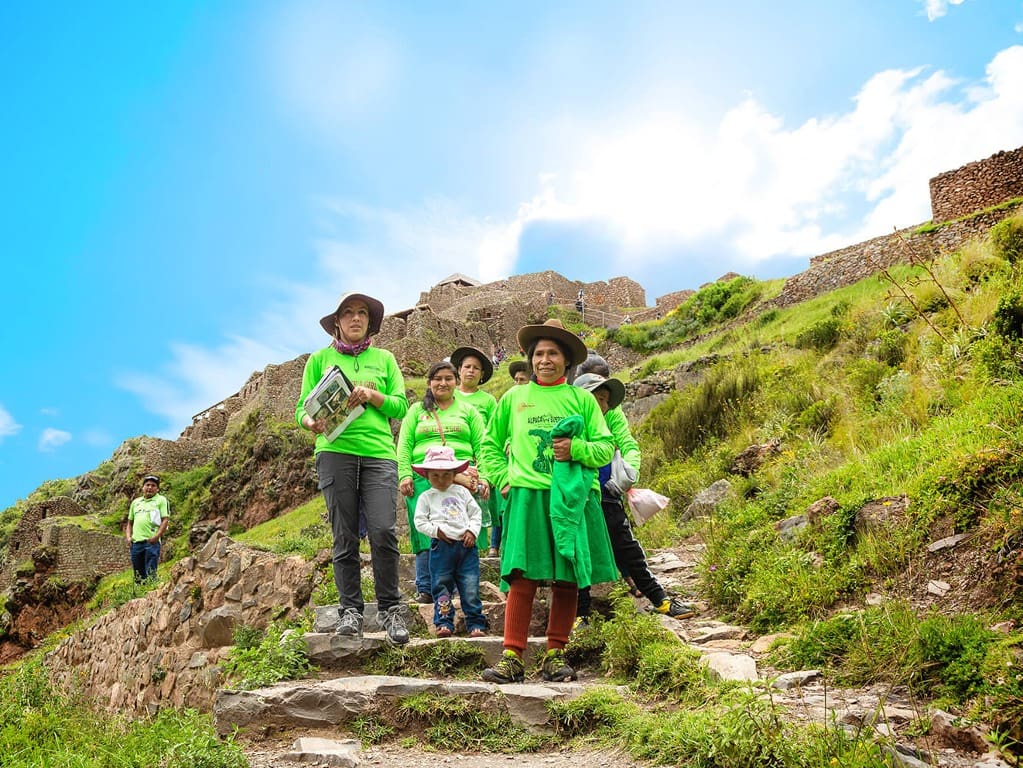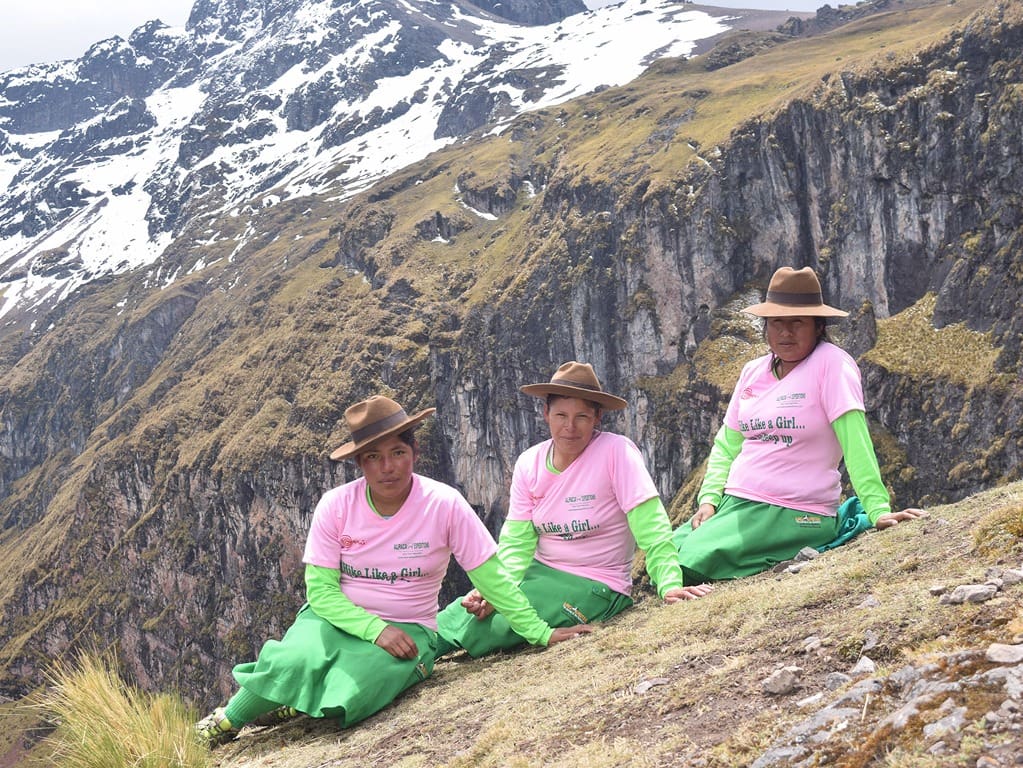Company proud to be Indigenous-owned
Peru’s Alpaca Expeditions says it feels a particularly personal bond with many of the sites that draw tourists to Andean Peru.
The Cusco-based company is entirely Indigenous-owned and operated, an uncommon development, says company CEO Raul Ccolque.
“Alpaca Expeditions is proud of it,” Ccolque says of the ownership. “Many traditional Peruvian tour companies, especially those catering to International travellers, are owned by non-Indigenous corporations. At Alpaca Expeditions, we stand out for our cultural authenticity and commitment to offering genuine, and community-focused experiences while supporting local Indigenous communities through employment and empowerment. Sustainability and the fair treatment of our staff are also top priorities.
“Being a locally Indigenous-owned and operated company means delivering a superior experience by offering unique cultural insights and authentic connections to the land and our people. The deep-rooted knowledge that our guides bring to the table extends beyond the standard historical facts and general information other non-Indigenous guides typically offer.”
The 2025 Peru trekking season has Alpaca Expeditions offer trekkers the likes of the legendary Inca Trail; the lesser-known Salkantay Trek to Machu Picchu, a trek for women only; the Choquequirao Trek; and the Cusco-to-Amazon exploration.
Ccolque says Alpaca’s guides intimately understand and connect with the natural landscapes, ecosystems, and ancestral traditions passed down through generations in a region that was the epicenter of the Inca Empire.
“Our Indigenous guides share stories, legends, and spiritual meanings tied to the landmarks, adding layers of depth to each trek or tour that non-Indigenous companies simply cannot replicate,” he continues. “Their connection to sacred sites like Machu Picchu or the Inca Trail is personal, and they often possess insider knowledge of lesser-known trails, hidden archeological gems, and sustainable practices rooted in local customs. Our expertise not only makes Alpaca Expeditions’ tours richer in experience but also ensures that the journey is conducted in a way that is respectful and beneficial to the land and communities visited.
“In short, by choosing Alpaca Expeditions, guests benefit from a truly immersive adventure led by guides who view the landscape as a destination and their heritage. This connection transforms the tour into a unique, educational, and meaningful experience.”
Ccolque says the staff at Alpaca Expeditions feels a deep bond with the villages visited during their expeditions because of their shared Indigenous heritage. Many guides and staff come from those very communities or have close cultural ties to them. “This connection fosters a sense of pride and responsibility in showcasing the landscape’s cultural traditions, history, and way of life in these villages,” he adds.
“The bond our staff members have with the local communities goes beyond professional duty — it’s personal. The staff often intimately know the people and places, creating an authentic, welcoming atmosphere for guests. This heritage connection also drives Alpaca Expeditions’ commitment to giving back, whether through supporting local economies, preserving cultural practices, or ensuring sustainable tourism that respects the land and its people.”
Among company initiatives are empowering women by offering tourism educational programs for them to become porters, guides, and other positions in the industry, as well as job opportunities that enable them to become more self-sufficient and elevate their families’ wellbeing.
Alpaca also undertakes reforestation efforts to promote environmental sustainability in remote regions, leading native tree-planting projects that engage locals and contribute to preserving the Andean landscape and fertile grounds.
The company also organizes excursions for children to Inca sacred sites, providing them with a unique opportunity to learn about their ancestors’ history.
As well, Alpaca Expeditions coordinates dentist visits to remote villages. A “portion of visitors’ travel budget funds dental treatments and promotes oral care by giving families dental care packages, ensuring they have the necessary tools to maintain good dental hygiene,” the company states.
Ccolque says Alpaca staff take immense pride in guiding tourists to sites built by their ancestors.
“This heritage fosters a strong sense of responsibility and honour as they share these sites’ history, traditions, and spiritual significance with our guests,” Ccolque states. “For the staff, these are historical landmarks and living embodiments of their cultural legacy. Sharing their ancestors’ achievements with travellers allows them to preserve and celebrate their heritage. This pride is reflected in how they guide, offering rich storytelling, historical insights, and personal reflections that create a deeper, more meaningful experience for guests.

“Those staff members are seen as having unique insights into the regions they visit due to their Indigenous roots and authentic connections with their ancestral land. Thiat in turn gives them a natural understanding of the sites’ history, culture, and overall environment and allows them to provide guests a more authentic and insightful experience beyond basic tourist information. “The immersive experience becomes meaningful for our staff and visitors alike,” Ccolque reports.
Ccolque adds helping local communities is fundamental for Alpaca Expeditions, which is “deeply committed to supporting and enriching the well-being of the people we visit and work with, protecting our cultural heritage and the natural beauty of our environment, and preserving the sacred sites and cultural traditions our ancestors built. We believe sustainable and responsible tourism not only enriches the traveler’s experience but also helps maintain the cultural heritage of the Peruvian Andes while enhancing the livelihood of the communities we visit and those of Alpaca Expeditions’ staff.
Alpaca Expeditions has a multilingual staff, with some employees speaking Quechua, the Indigenous language in the Cusco region.
“Alpaca Expeditions’ linguistic diversity helps provide a more immersive travel experience, sharing cultural insights and stories in a language that resonates with visitors,” Ccolque says. “Our staff’s ability to communicate in multiple languages ensures that all guests feel welcome and engaged during their adventures.”
More information can be found at alpacaexpeditions.com.


















